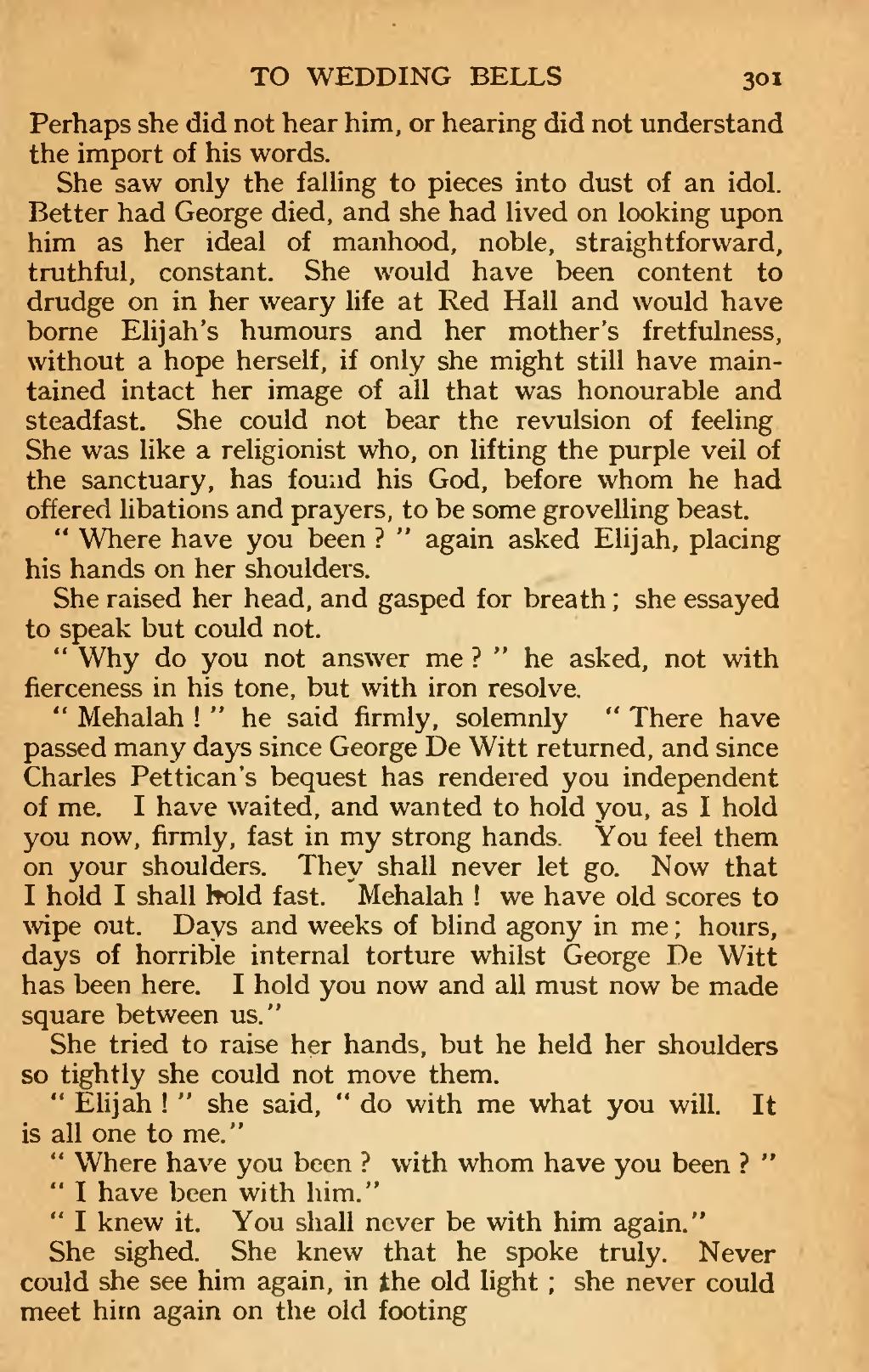Perhaps she did not hear him, or hearing did not understand the import of his words.
She saw only the falling to pieces into dust of an idol. Better had George died, and she had lived on looking upon him as her ideal of manhood, noble, straightforward, truthful, constant. She would have been content to drudge on in her weary life at Red Hall and would have borne Elijah's humours and her mother's fretfulness, without a hope herself, if only she might still have maintained intact her image of all that was honourable and steadfast. She could not bear the revulsion of feeling. She was like a religionist who, on lifting the purple veil of the sanctuary, has found his God, before whom he had offered libations and prayers, to be some grovelling beast.
"Where have you been?" again asked Elijah, placing his hands on her shoulders.
She raised her head, and gasped for breath; she essayed to speak but could not.
"Why do you not answer me?" he asked, not with fierceness in his tone, but with iron resolve.
"Mehalah!" he said firmly, solemnly "There have passed many days since George De Witt returned, and since Charles Pettican's bequest has rendered you independent of me. I have waited, and wanted to hold you, as I hold you now, firmly, fast in my strong hands. You feel them on your shoulders. They shall never let go. Now that I hold I shall hold fast. Mehalah! we have old scores to wipe out. Days and weeks of blind agony in me; hours, days of horrible internal torture whilst George De Witt has been here. I hold you now and all must now be made square between us."
She tried to raise her hands, but he held her shoulders so tightly she could not move them.
"Elijah!" she said, "do with me what you will. It is all one to me."
"Where have you been? with whom have you been?"
" I have been with him."
" I knew it. You shall never be with him again."
She sighed. She knew that he spoke truly. Never could she see him again, in the old light; she never could meet him again on the old footing
